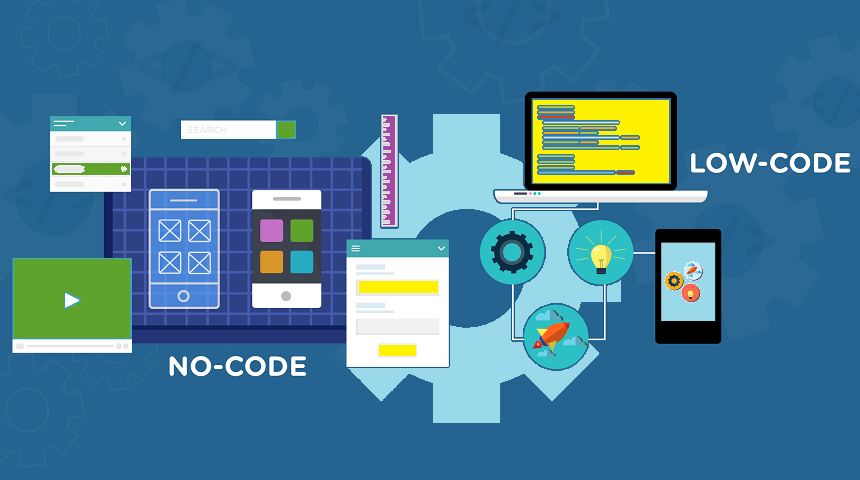Low-code/no-code (LCNC) platforms are rapidly changing the landscape of application development and task automation, empowering both developers and non-developers alike. These platforms provide visual interfaces and pre-built components that minimize or eliminate the need for traditional coding, making software creation more accessible and efficient. With the global LCNC market projected to reach $101.7 billion by 2030, these platforms are becoming essential tools for businesses seeking to accelerate digital transformation and stay competitive.
Democratizing Development and Empowering Citizen Developers
LCNC platforms democratize technology by enabling individuals without extensive programming knowledge to build functional software. These platforms empower "citizen developers"—business users who can create applications tailored to their specific requirements, fostering innovation and reducing reliance on IT. By 2026, it's predicted that citizen developers will outnumber professional developers four to one, and 80% of LCNC users will be outside IT departments.
Benefits for Developers
Contrary to the misconception that LCNC platforms will make developers obsolete, they actually augment their capabilities and shift their focus to higher-level tasks. Developers can leverage LCNC to:
- Focus on architecture and strategy: Spend less time on repetitive coding tasks and more on addressing complex technical challenges.
- Collaborate more effectively: Foster closer collaboration with business and marketing teams, leading to better solutions.
- Accelerate innovation: Build prototypes and MVPs (minimum viable products) more quickly, accelerating the innovation process.
- Manage app backlogs: Streamline app development and reduce the burden on IT resources, allowing developers to concentrate on complex projects.
Business Advantages
The adoption of LCNC platforms offers numerous business benefits, including:
- Accelerated development: Reduce app development time by up to 90%, enabling businesses to respond quickly to market changes and customer needs.
- Cost efficiency: Minimize the need for extensive coding and specialized developers, optimizing IT budgets. Companies using LCNC platforms can reduce development costs by up to 70%.
- Increased agility: Adapt applications quickly to evolving business needs without extensive rework.
- Improved productivity: Empower business users to control their application needs, increasing overall productivity. Companies leveraging LCNC platforms for customer-facing apps have seen revenue increases of 58% on average.
- Reduced Shadow IT Risks: By providing a governed platform for application development, LCNC helps to reduce the risks associated with business units seeking external applications to meet their needs.
Key Trends and Future Outlook
Several key trends are shaping the future of LCNC platforms:
- AI Integration: Artificial intelligence is becoming an integral part of LCNC platforms, with AI-driven recommendations for functionalities and code generation based on natural language.
- Focus on enterprise solutions: More large enterprises are adopting LCNC to build complex systems like CRMs (customer relationship management) and supply chain management tools.
- Hybrid models: The future lies in combining LCNC with traditional development, leveraging the strengths of both approaches.
- Enhanced security and compliance: Security and compliance are becoming top priorities, with LCNC platforms incorporating robust governance and control measures to prevent data breaches.
Challenges and Considerations
Despite the numerous benefits, there are challenges associated with LCNC adoption:
- Complexity: No-code platforms are excellent for simple applications but may fall short when dealing with complex projects requiring unique functionalities.
- Vendor lock-in: Organizations that heavily invest in a specific platform may find themselves tied to that vendor, complicating future migrations or adaptations.
- Security and governance: With the rise of citizen developers, the risk of security issues increases, necessitating strict governance and control measures.
- Integration complexities: Integrating LCNC platforms with existing systems can be challenging, particularly with older systems that lack modern APIs or data formats.
In conclusion, low-code and no-code platforms are revolutionizing software development by empowering both developers and non-developers to build applications and automate tasks more efficiently. These platforms offer numerous benefits, including accelerated development, cost savings, increased agility, and enhanced collaboration. As LCNC platforms continue to evolve with AI integration and enhanced security features, they are poised to play an increasingly important role in driving digital transformation and enabling businesses to thrive in today's fast-paced environment.

















